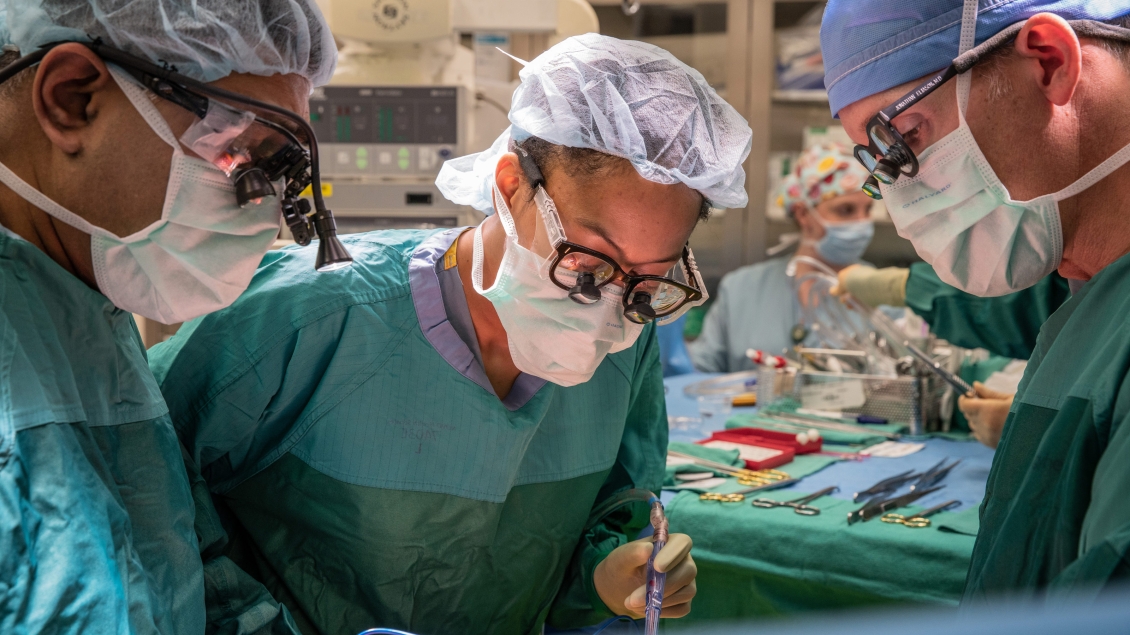
Dedicated to Excellence
The Department of Surgery is one of the oldest departments of its kind in the country, drawing patients from around the state and country for top-rated, specialized treatments.
Since 1849, the University of Michigan Medical School Department of Surgery has been healing patients with a blend of Midwestern compassion and nationally renowned clinical expertise.
We’re proud of our history and where we’re going. Today, we treat more than 18,000 surgical cases a year, bringing together the combined knowledge and experience of over 150 faculty physicians across more than 20 specialties.
Michigan surgeons invented transhiatal esophagectomy, the Greenfield filter for pulmonary embolism treatment, and extracorporeal membrane oxygenation (ECMO), an advanced life-support technology. In particular, our strengths in cancer care, fetal surgery, burn treatment, and solid organ transplant set us apart for their multidisciplinary and innovative approach. The Department of Surgery serves as a referral center for every county in the state of Michigan, and families frequently travel from out of state to seek treatment here.
We’re highly ranked nationally for the quality of our clinical care, a fact that demonstrates the strengths we draw from our position within Michigan Medicine. Because of the breadth of the talent and resources of Michigan Medicine and its nearly 2,000 faculty, we’re able to offer a caliber of care found only in a high-volume academic medical center.
Beyond the OR, Department of Surgery faculty draw on deep strengths in medical research to synthesize the most effective and tested approaches. Collaborations nationally and globally inform and enrich our understanding of novel treatments, while extending the reach of this life-saving knowledge.
U-M Health offers comprehensive and innovative surgical teams throughout its clinics and facilities, providing patients with the critical care they need.




